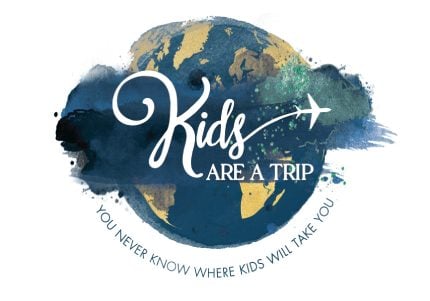Traveling With Food Allergies – Challenging But Not Impossible
Traveling with food allergies can be challenging, but it is not impossible. Traveling when your child has allergies can be a scary proposition. Each restaurant you enter is a potential threat to your child. When you grab a snack, it is no longer an easy choice, you must carefully scan each label to make sure the product does not contain something that could cause your child to have a reaction.
For those of us who have children with allergies, this is the world we live in. We can choose to be proactive, or we can stay home and never leave again. In the beginning, I wanted to choose the latter. It is a scary world out there for children with allergies, but after many hours of research and multiple discussions with doctors and other parents, I realized it was ok to take my child out into the world and let him taste it.
Table of Contents
How to Stay Safe When Traveling with Food Allergies
1. Have a plan
Before you leave, talk with your doctor and develop an allergy action plan. What medicine should you bring on your trip? Do you need to travel with a prescription? What should you do if your child has a reaction while traveling?
2. Bring all necessary medications in your carry-on
Bring medications you may need for an allergic reaction. For us this includes Benadryl® and an EpiPen®. Have each adult carry medicine with them at all times.
3. Travel with a copy of your prescription
It is helpful to have a copy in case you lose your medication or if you are questioned by security at the airport.
4. Bring some allergy friendly snacks from home
Bring some allergy free snacks and food to get you through the first couple of days or more, especially when you are traveling out of the country. We usually bring some bagel thins and sunflower seed butter, cheese crackers, and raisins. You can find additional ideas in my posts Easy to Pack Travel Snacks or Easy to Pack Nut Free Travel Snacks. Bring small food items that travel easily.
5. Travel with allergy translation cards when traveling to foreign countries
If you are visiting a foreign country, bring allergy translation cards. You can find these at websites such as Select Wisely and AllergyTranslation.com. These will come in handy at restaurants or grocery stores, especially when you need to find out if a food is safe for your child to eat. Be extra careful when scanning labels at the grocery store. Not only are label standards different in other countries, but they may have different quality control procedures as well.
6. Find lodging that allows you to prepare your own meals
Try to stay in hotels or apartments that have kitchens where you can prepare your own meals or at least have a small refrigerator where you can keep groceries on hand. We have found luck with many self catering apartments which have kitchens allowing us to prepare our own meals.
7. Learn the location and phone # of the nearest hospital and emergency room upon arrival
When you check in at your accommodation, ask for the name and location of the nearest emergency clinic and/or doctor. Also, ask for the emergency number (the equivalent of our 911) if you are in a foreign country. If possible, you should try to travel with a cell phone at all times.
8. Check with the airlines regarding food service and notify them of your food allergies if necessary
It is a good idea to check with the airline regarding any food they may be serving on your flight. Many airlines will accommodate passengers with food allergies and provide an allergy safe meal upon request.

Photo credit: Creative Commons
9. Use hand wipes before your child eats
Bring hand wipes to clean surfaces where your child might be playing or eating such as airplane trays. You never know what the person before you had to eat or may have touched.
10. Never assume
It only takes one mistake to end up in the hospital, so when in doubt, ask if the food item has the allergen you are concerned about, and if you don’t like the answer, ask someone else who knows if the food is 100% safe. Learn from our mistakes and never assume your spouse has the Epipen with them when you leave the hotel room to go out for the day. It has become part of our routine to make sure we are always prepared for an allergic reaction.
Traveling with a child with food allergies is certainly a challenge, but far from impossible. I will admit, there have been a couple of close calls along the way, but we have learned from our mistakes. I have found that doing a little legwork ahead of time can make for a more enjoyable vacation in the long run.
*Disclaimer: I am not a medical doctor. My comments are based on my personal experience, and are not intended to constitute medical advice. All allergies and individual sensitivities differ so please be sure and consult your physician.

